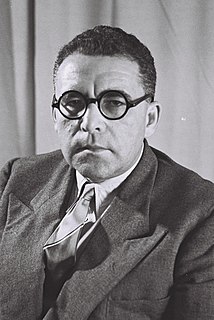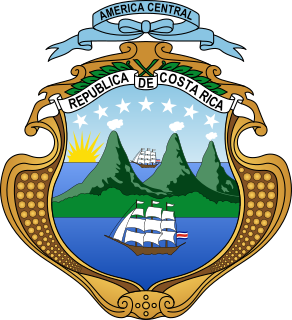A constituent assembly or constitutional assembly is a body or assembly of popularly elected representatives composed for the purpose of drafting or adopting a constitutional-type document. The constituent assembly is a subset of a constitutional convention elected entirely by popular vote; that is, all constituent assemblies are constitutional conventions, but a constitutional convention is not necessarily a constituent assembly. As the fundamental document constituting a state, a constitution cannot normally be modified or amended by the state's normal legislative procedures; instead a constitutional convention or a constituent assembly, the rules for which are normally laid down in the constitution, must be set up. A constituent assembly is usually set up for its specific purpose, which it carries out in a relatively short time, after which the assembly is dissolved. A constituent assembly is a form of representative democracy.

The Constitution of India is the supreme law of India. The document lays down the framework demarcating fundamental political code, structure, procedures, powers, and duties of government institutions and sets out fundamental rights, directive principles, and the duties of citizens. It is the longest written constitution of any country on earth. B. R. Ambedkar, chairman of the drafting committee, is widely considered to be its chief architect.

The Supreme Court of India is the highest judicial court and the final court of appeal under the Constitution of India, the highest constitutional court, with the power of judicial review. Consisting of the Chief Justice of India and a maximum of 31 judges, it has extensive powers in the form of original, appellate and advisory jurisdictions.

The Constitution of the Republic of Lithuania defines the legal foundation for all laws passed in the Republic of Lithuania. It was approved in a referendum on 25 October 1992.
The International law bearing on issues of Arab–Israeli conflict, which became a major arena of regional and international tension since the birth of Israel in 1948, resulting in several disputes between a number of Arab countries and Israel.

The Constitution of Colombia, better known as the Constitution of 1991, is the current governing document of the Republic of Colombia. Promulgated on July 4, 1991, it replaced the Constitution of 1886. It is Colombia's ninth constitution since 1830. See a timeline of all previous constitutions and amendments here. It has recently been called the Constitution of Rights.

The Constitution of the People's Republic of Bangladesh is the constitutional document of Bangladesh. It was adopted on 16 December 1972. It provides the framework of the Bangladeshi republic with a parliamentary government, fundamental human rights and freedoms, an independent judiciary, democratic local government and a national bureaucracy. The constitution includes references to socialism, Islam, secular democracy and the Bengali language. It commits Bangladesh to “contribute to international peace and co-operation in keeping with the progressive aspirations of mankind”. The constitution has several controversial elements like Article 70.
Article 370 of the Indian constitution is an article that gives autonomous status to the state of Jammu and Kashmir. The article is drafted in Part XXI of the Constitution: Temporary, Transitional and Special Provisions. The Constituent Assembly of Jammu and Kashmir, after its establishment, was empowered to recommend the articles of the Indian constitution that should be applied to the state or to abrogate the Article 370 altogether. After the J&K Constituent Assembly later created the state's constitution and dissolved itself without recommending the abrogation of Article 370, the article was deemed to have become a permanent feature of the Indian Constitution.

Basic Law: Human Dignity and Liberty is a Basic Law in the State of Israel, enacted to protect the country's main human rights. It enjoys super-legal status, giving the Supreme Court the authority to disqualify any law contradicting it, as well as protection from Emergency Regulations. The view of most Supreme Court judges is that the enactment of this law and of Basic Law: Freedom of Occupation began the Constitutional Revolution. According to this position, these laws marked a substantial change in the status of human rights in Israel.

Israeli law is based mostly on a common law legal system, though it also reflects the diverse history of the territory of the State of Israel throughout the last hundred years, as well as the legal systems of its major religious communities. The Israeli legal system is based on common law, which also incorporates facets of civil law. The Israeli Declaration of Independence asserted that a formal constitution would be written, though it has been continuously postponed since 1950. Instead, the Basic Laws of Israel function as the country's constitutional laws. Statutes enacted by the Knesset, particularly the Basic Laws, provide a framework which is enriched by political precedent and jurisprudence. Foreign and historical influences on modern-day Israeli law are varied and include the Mecelle and German civil law, religious law, and British common law. The Israeli courts have been influenced in recent years by American Law and Canadian Law and to a lesser extent by Continental Law.

Yizhar Harari was a Zionist activist and Israeli politician.

The preamble to the Constitution of India is a brief introductory statement that sets out guidelines to guide people and to present the principles of the document, and to indicate the source from which the ordinary document derives its authority, meaning, and the people. The hopes and aspirations of the people as well as the ideals before our nation are described in the preamble in clear words. The preamble can be referred to as the preface which highlights the entire Constitution. It was adopted on 26 November 1949 by the Constituent Assembly and came into effect on 26 January 1950, which is celebrated as the Republic day in India.
The purposive approach is an approach to statutory and constitutional interpretation under which common law courts interpret an enactment within the context of the law's purpose.
Amending the Constitution of India is the process of making changes to the nation's fundamental law or supreme law. The procedure of amendment in the constitution is laid down in Part XX of the Constitution of India. This procedure ensures the sanctity of the Constitution of India and keeps a check on arbitrary power of the Parliament of India.
"Jewish and democratic state" is the Israeli legal definition of the nature and character of the State of Israel. The "Jewish" nature was first defined within the Declaration of Independence of 1948. The "Democratic" character was first officially added in the amendment to the Basic Law: the Knesset that was passed in 1985.

The Tunisian Constitution of 2014 was adopted on 26 January 2014 by the Constituent Assembly elected on 23 October 2011 in the wake of Tunisia's Jasmine Revolution that overthrew President Zine El Abidine Ben Ali. It was passed on 10 February 2014, replacing the constitutional law of 16 December 2011 that temporarily formed the basis of government after the suspension of the Constitution of 1959.

The Constitution of Costa Rica is the supreme law of Costa Rica. At the end of the 1948 Costa Rican Civil War, José Figueres Ferrer oversaw the Costa Rican Constitutional Assembly, which drafted the document. It was approved on 1949 November 7. Several older constitutions had been in effect starting from 1812, with the most recent former constitution ratified in 1871. The Costa Rican Constitution is remarkable in that it abolished the Costa Rican military, making it the first nation to do so by law. Another unusual clause include an amendment asserting the right to live in a healthy natural environment.

Elisheva Barak-Ussoskin is an Israeli retired judge. She sat on the Regional Labor Courts in Jerusalem and Beersheba from 1990 to 1995, and served as judge on the National Labor Court from 1995 to 2006. She also served as Vice President of the National Labor Court. Her rulings on labor law and labor relations were said to further the rights of workers more than any other Israeli judge. She is the wife of Aharon Barak, former President of the Supreme Court of Israel.















